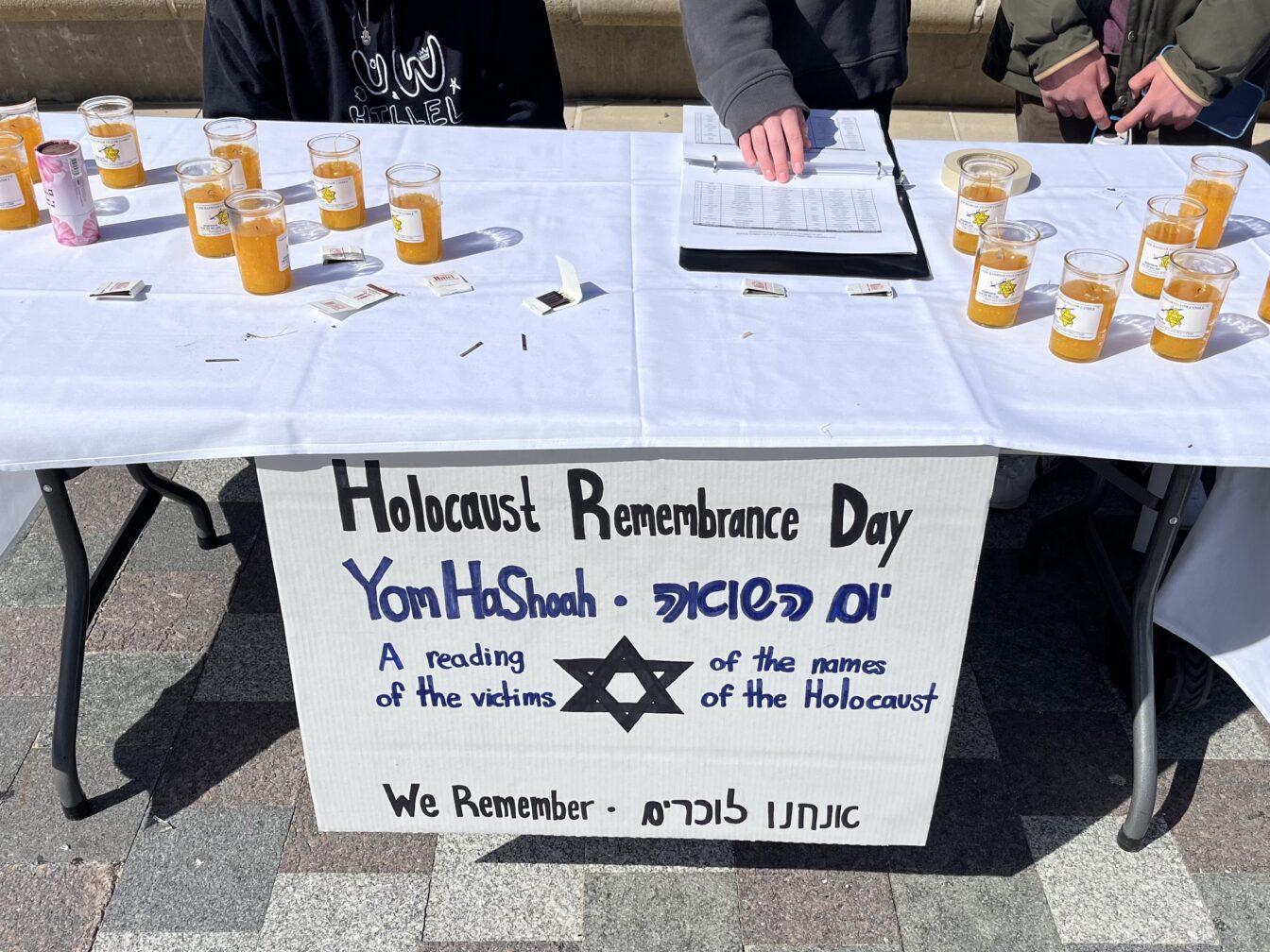Members of the Jewish community observed Yom HaShoah on the University of Wisconsin campus beginning Monday at sundown.
Yom HaShoah is a day of memory for Jewish people across the diaspora and remembers the six million Jewish people of Eastern Europe who were murdered in the Holocaust, UW Hillel Foundation Rabbi Andrea Steinberger said in an email statement to The Badger Herald.
Shoah, a Hebrew word meaning something was destroyed, is used to refer to the genocide of European Jews during World War II. Specifically, the Shoah refers to events that occurred between the years of 1941 and 1945 by Nazi Germany and its collaborators, according to Steinberger.
The day is observed on the 27th day of the Hebrew month of Nissan — five days after the Jewish holiday of Passover ends, Steinberger said.
Jan. 27 is recognized as International Holocaust Remembrance Day, but this day differs from the Jewish observance of Yom HaShoah.
International Holocaust Remembrance Day is a secular day of remembrance designated by the United Nations as a memorial to the date on which the Auschwitz-Birkenau concentration camp was liberated, according to Steinberger.
“It is also an important date, and I am very glad it is observed throughout the world on that date, but it is commemorating one particular moment rather than the vastness of the Holocaust,” Steinberger said.
Yom HaShoah is important to Jews in the diaspora for multiple reasons, UW professor of rhetoric and culture Michael Bernard-Donals said in an email statement to The Badger Herald.
“One of the reasons for its importance is that so many surviving Jews left Europe in the wake of the Shoah, and families in the U.S., Israel and elsewhere — whose own diaspora was a result of the catastrophe — are connected, through memory of the event itself and to the commemoration,” Bernard-Donals said.
The observance of Yom HaShoah takes many forms across the world, but all observances focus on remembrance. In the Jewish state of Israel, it is a national day of mourning. Jewish communities in the U.S. hold ceremonies of memory, Steinberger said.
Ceremonies of memory bring the community together to listen to the words written by people during the Holocaust, hear from survivors, light memorial candles and recite memorial prayers, according to Steinberger.
A ceremony of memory was held at Hillel Monday evening. Tuesday afternoon, students and passersby commemorated the victims who were murdered during the Holocaust on Library Mall — reading their names, where they lived and how old they were when they died.
Remembering the sad events that happened to Jewish people and other marginalized communities during the time of World War II can be difficult, according to Steinberger. But the stories of those who lived during this time are an important part of Jewish community life and heritage.
“Each of our families is touched by this loss in some way,” Steinberger said.
Though the remembrance of the Holocaust may be difficult, this day of reflection and remembrance is important amid heightened antisemitism online and in public spaces, Steinberger said.
“Remembering the voices of survivors is important because they are our best teachers about what happens when hate goes unchecked,” Steinberger said. “They experienced it themselves, and they are our best teachers.”



